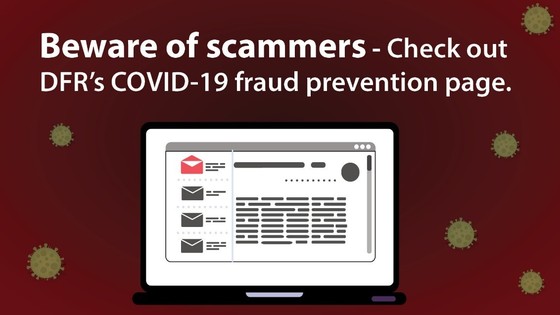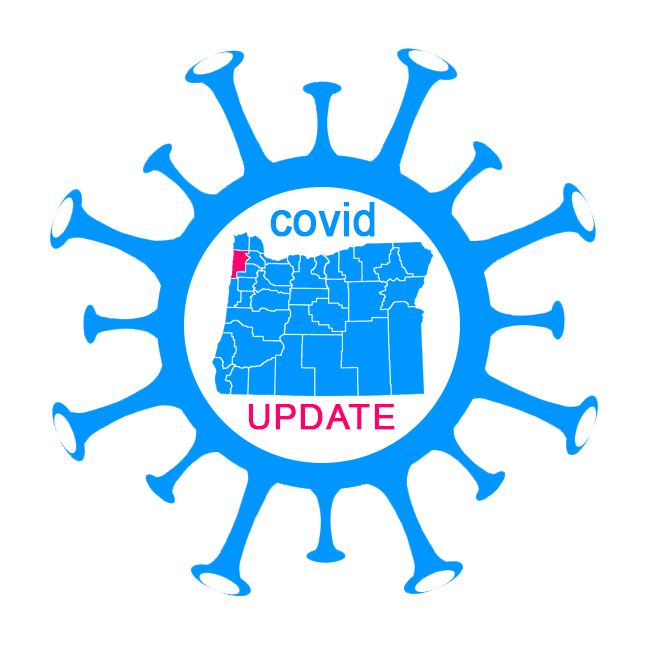COVID-19 Corrections – from Gordon McCraw, Tillamook County Emergency Director and COVID-19 Incident Commander
Oregon reports 342 new confirmed and presumptive COVID-19 cases, 5 new deaths
COVID-19 has claimed five more lives in Oregon, raising the state’s death toll to 333, the Oregon Health Authority reported Tuesday August 4th.
Oregon Health Authority reported 342 new confirmed and presumptive cases of COVID-19, bringing the state total to 19,699.
The new cases reported are in the following counties: Baker (2), Benton (3), Clackamas (21), Clatsop (1), Columbia (5), Coos (3), Crook (1), Deschutes (8), Douglas (5), Harney (2), Hood River (5), Jackson (17), Jefferson (13), Josephine (1), Klamath (2), Lane (12), Linn (1), Malheur (33), Marion (23), Morrow (11), Multnomah (57), Polk (4), Tillamook (2)*, Umatilla (61), Union (4), Wasco (1), Washington (29), and Yamhill (15).
Oregonians will continue to receive increased food benefits in August
The Oregon Department of Human Services has received approval by the federal Food and Nutrition Service to continue in August to provide increased food benefits and waive the interview requirement for new applicants – making it faster and easier for Oregonians to access benefits.
This will result in an additional $30 million to eligible Supplemental Nutrition Assistance Program (SNAP) recipients in August 2020.
“As the pandemic continues, access to food has worsened greatly,” said Self-Sufficiency Programs Deputy Director Claire Seguin. “Providing another month of emergency assistance will help ease the threat of chronic hunger in Oregon.”
SNAP households will automatically receive the additional allotment in the same way they receive their current benefits. For most customers this is an EBT card. The additional benefit amount will be disbursed on the schedule below to all eligible SNAP households.

No additional action is needed from Oregonians already enrolled in SNAP. The increase brings all households to the maximum SNAP benefit. Households that already receive the maximum benefit will not receive any additional benefits.
Resources
- Learn more about the allotment athttps://www.flashalertnewswire.net/images/news/2020-07/973/136496/Oregonians_will_continue_to_receive_increased_food_benefits_in_August.pdf
- Learn how to apply for SNAP and other benefits online or by phone athttps://www.oregon.gov/DHS/COVID-19/Pages/Home.aspx.
- SNAP customers can contact their local SSP or AAA office for more information. Find a local office at: gov/DHS/Offices/Pages/index.aspx
- Find other food resources at https://oregonhunger.org/covid-19/
Public charge rule blocked amid COVID-19 pandemic
A judge issued new injunctions last week blocking the public charge immigration rule during the COVID-19 pandemic. This will allow immigrant communities across Oregon and the rest of the country to access critical health care and public benefits during the current health crisis.
The injunction issued against the Department of Homeland Security prevents the agency from enforcing, applying, implementing or treating as effective the “public charge” rule for any period during a declared national health emergency in response to the COVID-19 outbreak. The rule had expanded the list of benefits that the federal government could consider in deciding whether a person can enter the United States or obtain lawful permanent residency.
“The public charge rule has worsened health disparities, especially for the Latino/a/x community, at a time when they are most hard hit by the lethal coronavirus,” said Patrick Allen, Oregon Health Authority Director. “Here in Oregon many immigrant families decided not to access public benefits, even leaving their children without health insurance.”
In January the Supreme Court issued a ruling that lifted an October 2019 decision to block the public charge rule, allowing it to go into effect. As a result, the Department of Homeland Security began enforcing the rule on Feb. 24, just before the coronavirus outbreak became a nationwide pandemic.
Learn about how to avoid coronavirus scams
The COVID-19 pandemic has given scammers a variety of different opportunities to commit fraud. Learn more about potential scams at the Division of Financial Regulation’s COVID-19 fraud prevention webpage. Topics include fake mobile banking apps, government imposters, bogus unemployment claims, and more.



